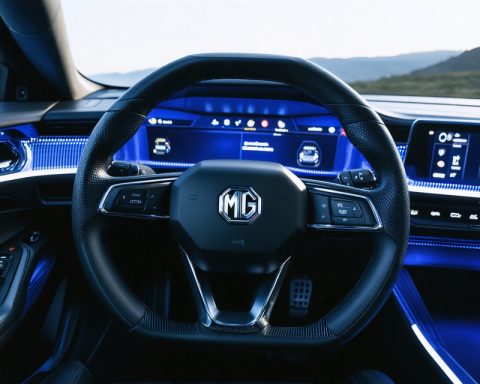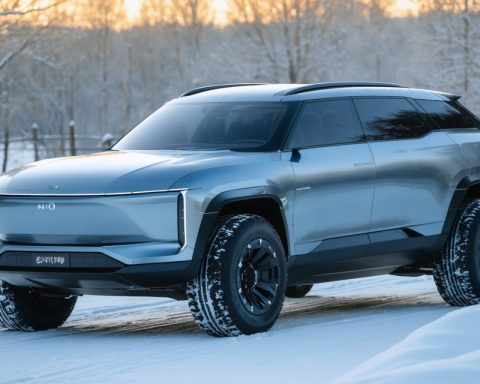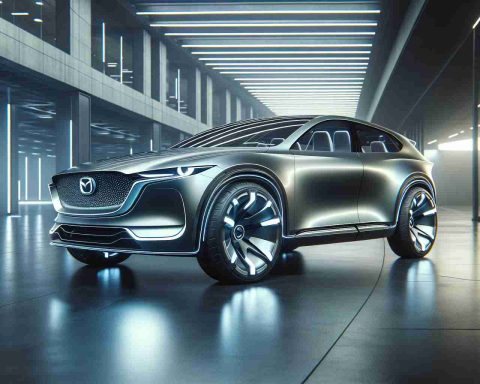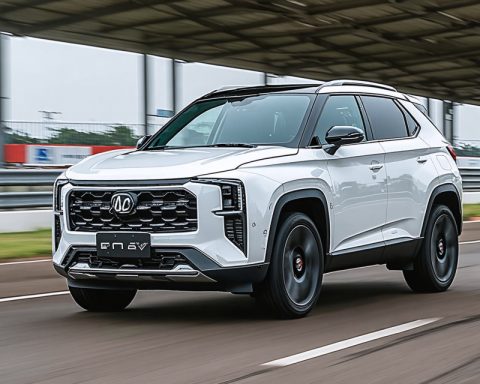- Porsche is transforming electric vehicle (EV) battery recycling into a sustainable initiative, recovering valuable minerals like nickel, cobalt, manganese, and lithium.
- The company processes old batteries into “black mass,” a granulate rich in essential materials for future EV production.
- These efforts aim to incorporate recycled elements into new battery cells, aligning with Porsche’s vision of a circular economy.
- Porsche’s initiative anticipates stricter EU battery regulations by 2031, ensuring compliance and sustainability.
- This recycling project supports environmental stewardship, securing raw material supply amidst global market fluctuations.
- Porsche seeks to blend high-performance engineering with sustainability, reinforcing its reputation as an automotive industry leader.
A vision of sustainability propels Porsche beyond the realm of high-performance cars, as the iconic automaker embarks on a pioneering journey into the heart of electric mobility. In a bold initiative that marries environmental stewardship with innovative engineering, Porsche has set its sights on transforming the end-of-life electric vehicle (EV) batteries, not merely as waste products, but as a reservoir of untapped resources.
Amid escalating global demand for critical minerals and a clamor for sustainability, Porsche has initiated a comprehensive pilot project aimed at recycling high-voltage EV batteries. This ambitious program seeks to recover valuable elements like nickel, cobalt, manganese, and lithium—essential ingredients for creating the electrified motorways of the future. Picture a mechanical shredding process that deftly dissects old battery components, distilling them into a substance known as “black mass.” This gritty granulate holds the promise of fueling tomorrow’s electric vehicles.
So far, the project has processed about 65 tonnes of development vehicle batteries, systematically breaking them down into raw materials with a finesse that underscores Porsche’s technological prowess. The “black mass” doesn’t just symbolize waste; it’s the raw potential for new beginnings. Through meticulous refinement, this material is transformed into high-purity elements poised to meet the impeccable performance standards synonymous with Porsche’s brand.
This recycling venture doesn’t stop at mere material recovery. It forges a link between the past and the future, setting the stage for manufacturing battery cells that incorporate a defined proportion of these recycled elements. As these new cells roll into the testing phase for future Porsche models, the company inches closer to its vision of a circular economy—a cornerstone of its sustainability ambition.
Porsche’s efforts align with its strategy to navigate regulatory landscapes, specifically the anticipated EU battery regulations slated to tighten in 2031. By embracing this forward-thinking approach, Porsche not only ensures compliance but also positions itself as a beacon of innovation in sustainable vehicle production.
Through this initiative, Porsche reaffirms its commitment to reducing environmental impacts and securing an all-important future supply of raw materials. It’s a savvy maneuver designed to buffer against geopolitical instabilities and market fluctuations, reinforcing Porsche’s stature as a trailblazer in the automotive industry.
In embracing the circular economy, Porsche isn’t just recycling batteries; it’s redefining the lifecycle of an electric vehicle, offering a blueprint of how high-performance engineering can coexist with sustainability. Ultimately, the project serves as a vivid reminder: that what we discard could very well propel us to our most exhilarating leaps forward in innovation.
Porsche’s Electrifying Leap: How Recycling EV Batteries Fuels Futuristic Mobility
Porsche is steering towards a future where sustainability and high-tech engineering go hand in hand. Their recent initiative to recycle electric vehicle (EV) batteries is a pivotal step in that direction. Unveiling the untapped potential within dead batteries, Porsche is not only addressing the environmental concerns but also setting a precedent for other automakers. This article explores additional facts and insights surrounding this ambitious endeavor.
How Porsche’s Battery Recycling Works
1. Mechanical Shredding: The process begins with deconstructing old batteries into components using mechanical shredding to create “black mass.”
2. Material Recovery: The black mass is processed to extract high-purity materials such as nickel, cobalt, manganese, and lithium.
3. Refinement Process: These materials are refined into a reusable form that meets Porsche’s standards, ready for use in manufacturing new battery cells.
Why Is This Important?
– Environmental Stewardship: By recycling, Porsche mitigates the environmental impact of mining fresh materials and reduces waste.
– Supply Chain Security: As the demand for critical minerals escalates, recycling provides a steady supply of resources, reducing dependency on volatile markets.
– Regulatory Compliance: With the EU tightening battery regulations by 2031, Porsche is ahead of the curve, ensuring it meets future legislative demands.
Real-World Applications
– Battery Cell Manufacturing: Recycled materials are earmarked for future Porsche models, embedding sustainability into the DNA of their high-performance vehicles.
– Circular Economy: This project exemplifies a successful circular economy, where end-of-life resources are reintroduced into the production cycle.
Market Forecasts & Industry Trends
– Growing EV Market: As EV sales soar globally, the need for efficient recycling processes becomes critical. Porsche’s initiative could inspire industry-wide adoption, potentially becoming a standard practice.
– Rising Material Costs: Monetary pressures due to limited resources might propel more companies to invest in recycling technologies, aligning economic benefits with environmental goals.
Challenges and Limitations
– Technology Development: The recycling process requires advanced technology and infrastructure, potentially incurring high initial costs.
– Scalability: Expanding this initiative from a pilot project to full-scale implementation poses logistical and technical challenges.
Security & Sustainability
– Environmental Impact: Reducing the need for new raw material extraction diminishes pollution and ecosystem disruption.
– Geopolitical Concerns: Recycling provides a buffer against global tensions and resource scarcity.
Insights & Predictions
– Innovation Catalyst: Expect increased collaboration between automakers and technology firms to refine recycling processes.
– Legislative Influences: Governments might support such initiatives with incentives, driving broader industry participation.
Quick Tips for Companies Considering Recycling
– Invest in Research: Understanding the technology and market can aid in creating efficient systems.
– Partner Strategically: Collaborating with tech firms could enhance recycling capabilities and reduce costs.
Porsche’s Role in Shaping the Future
By redefining the life cycle of EV batteries, Porsche is not just meeting regulatory requirements but is carving a greener path forward in automotive engineering. Their efforts provide a blueprint for how luxury performance and sustainability can coexist.
For more insights on Porsche’s broad range of sustainable initiatives, visit Porsche.






















